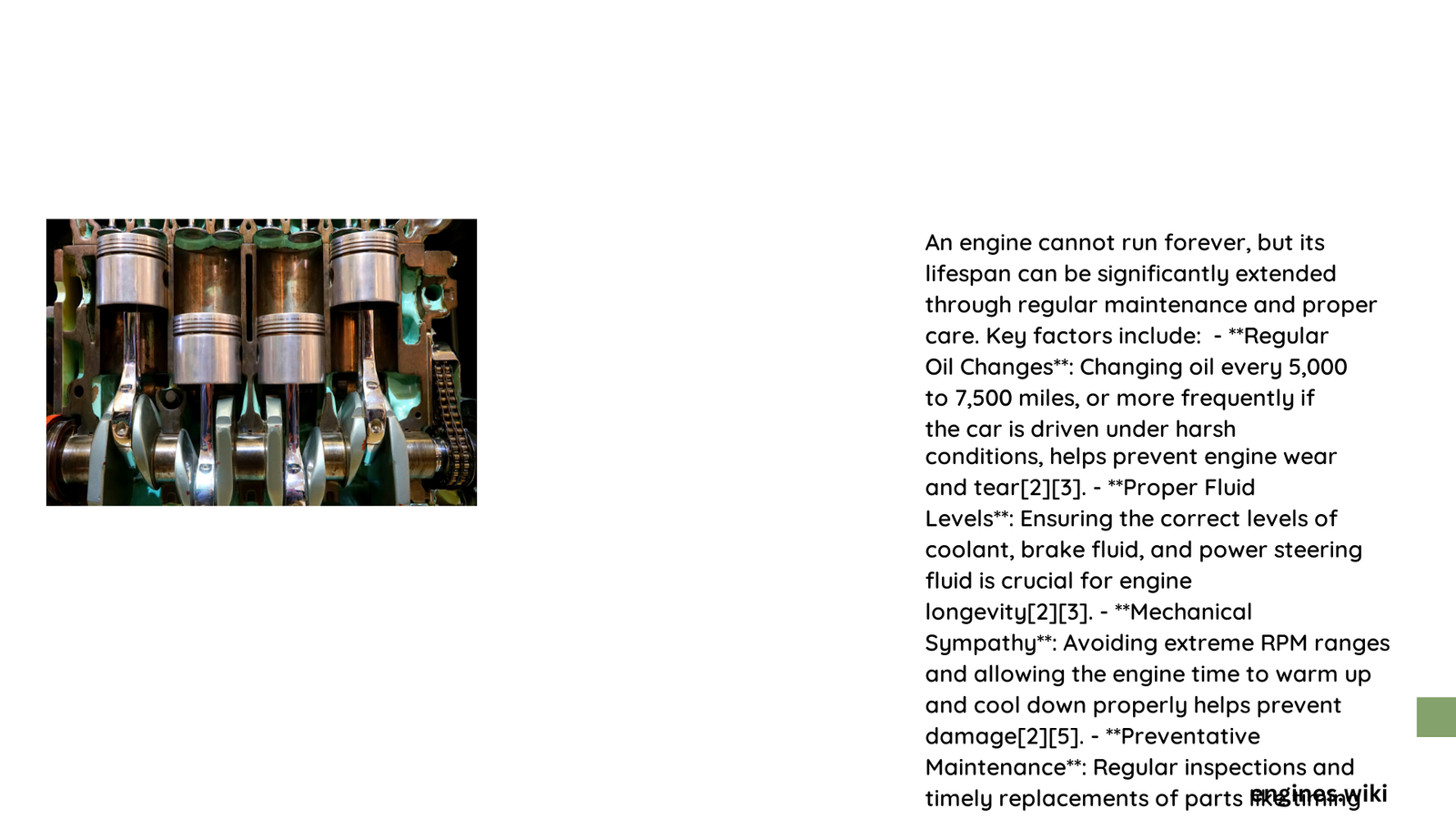Engines are complex mechanical systems designed to convert energy, but the dream of an eternally running engine remains scientifically impossible. The fundamental laws of physics, particularly thermodynamics, mechanical limitations, and energy conservation principles definitively prove that no engine can operate indefinitely without external energy input and maintenance.
What Prevents an Engine from Running Forever?
Thermodynamic Barriers to Perpetual Motion
The laws of thermodynamics create insurmountable obstacles for perpetual engine operation:
- Energy Conservation Principle
- First law states energy cannot be created or destroyed
- Engines require continuous energy input
-
No mechanism allows spontaneous energy generation
-
Entropy Limitations
- Second law demonstrates increasing system disorder
- Mechanical systems naturally degrade over time
- Energy transformations always involve some energy loss
Mechanical Wear and Degradation Factors
| Component | Wear Mechanism | Impact on Engine Longevity |
|---|---|---|
| Piston Rings | Friction Erosion | Reduces Compression Efficiency |
| Cylinder Walls | Thermal Expansion | Increases Mechanical Stress |
| Bearings | Lubrication Breakdown | Accelerates Mechanical Failure |
Why Do Engines Experience Performance Decline?
Engines deteriorate due to multiple interconnected factors:
- Friction-Induced Wear
- Constant mechanical movement generates heat
- Metal components experience microscopic damage
-
Lubrication systems cannot completely prevent degradation
-
Thermal Stress
- Temperature variations cause material expansion/contraction
- Creates microscopic cracks and structural weaknesses
- Reduces overall mechanical integrity
Quantitative Analysis of Engine Efficiency Limits
Theoretical Efficiency Calculations
– Carnot Efficiency Limit: Maximum 37-55%
– Practical Internal Combustion Engines: 20-35% efficiency
– Advanced Diesel Engines: Up to 50-55% efficiency
Technological Strategies for Extended Engine Performance
While perpetual operation remains impossible, engineers develop strategies to maximize engine longevity:
- Advanced Material Development
- Precision Manufacturing Techniques
- Sophisticated Lubrication Systems
- Predictive Maintenance Technologies
Conclusion: Scientific Reality of Engine Limitations
No engine can run forever due to fundamental physical constraints. Energy transformation always involves losses, and mechanical systems inevitably experience degradation. The pursuit of maximum efficiency continues, but perpetual motion remains an unachievable scientific fantasy.

